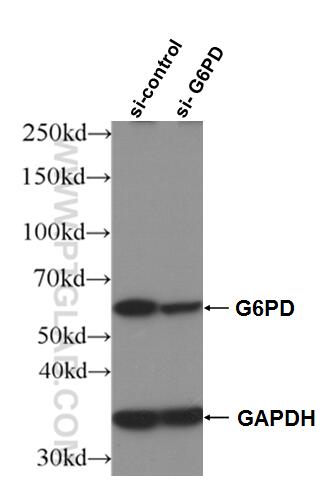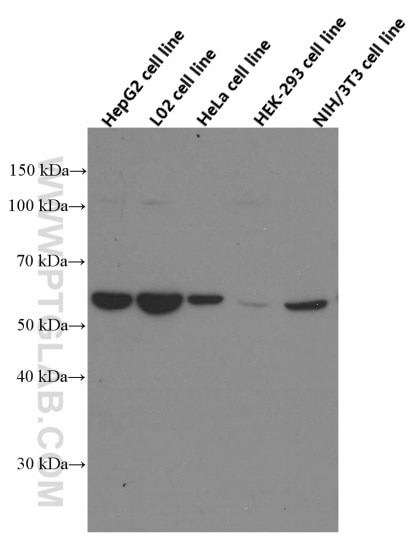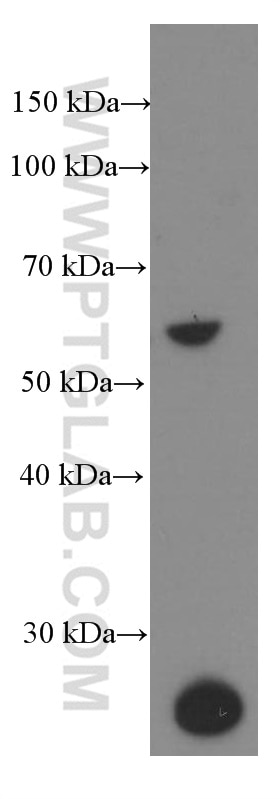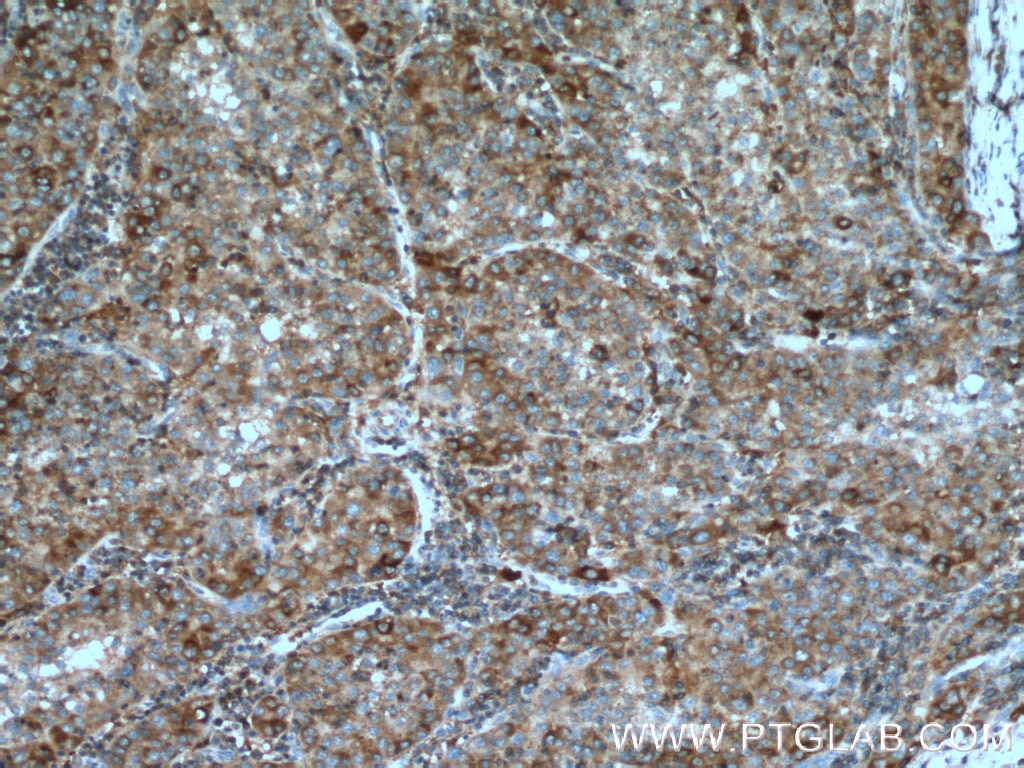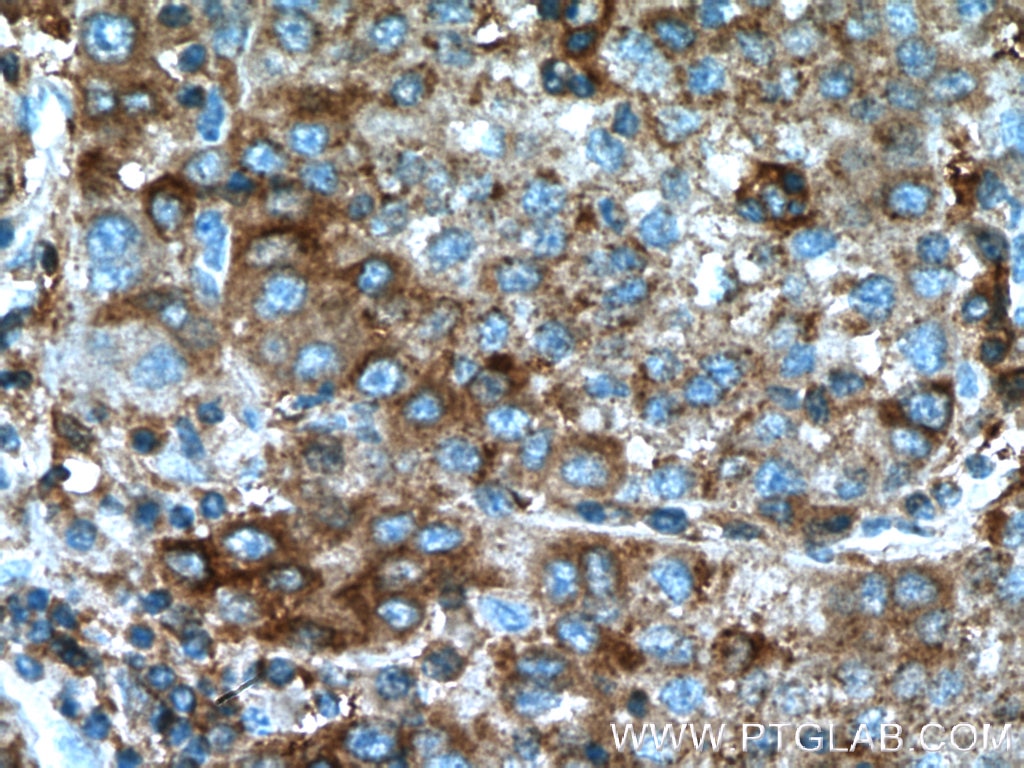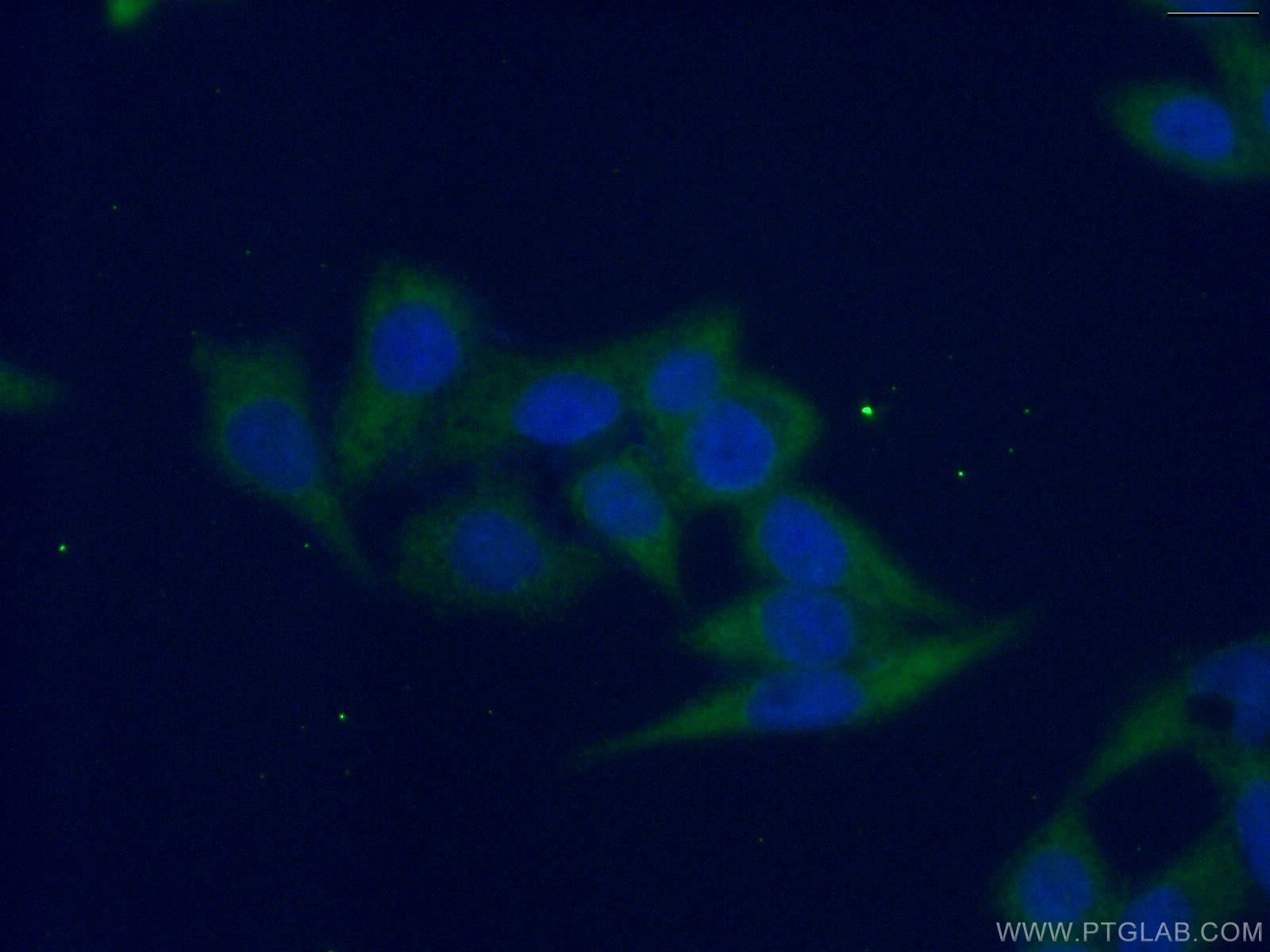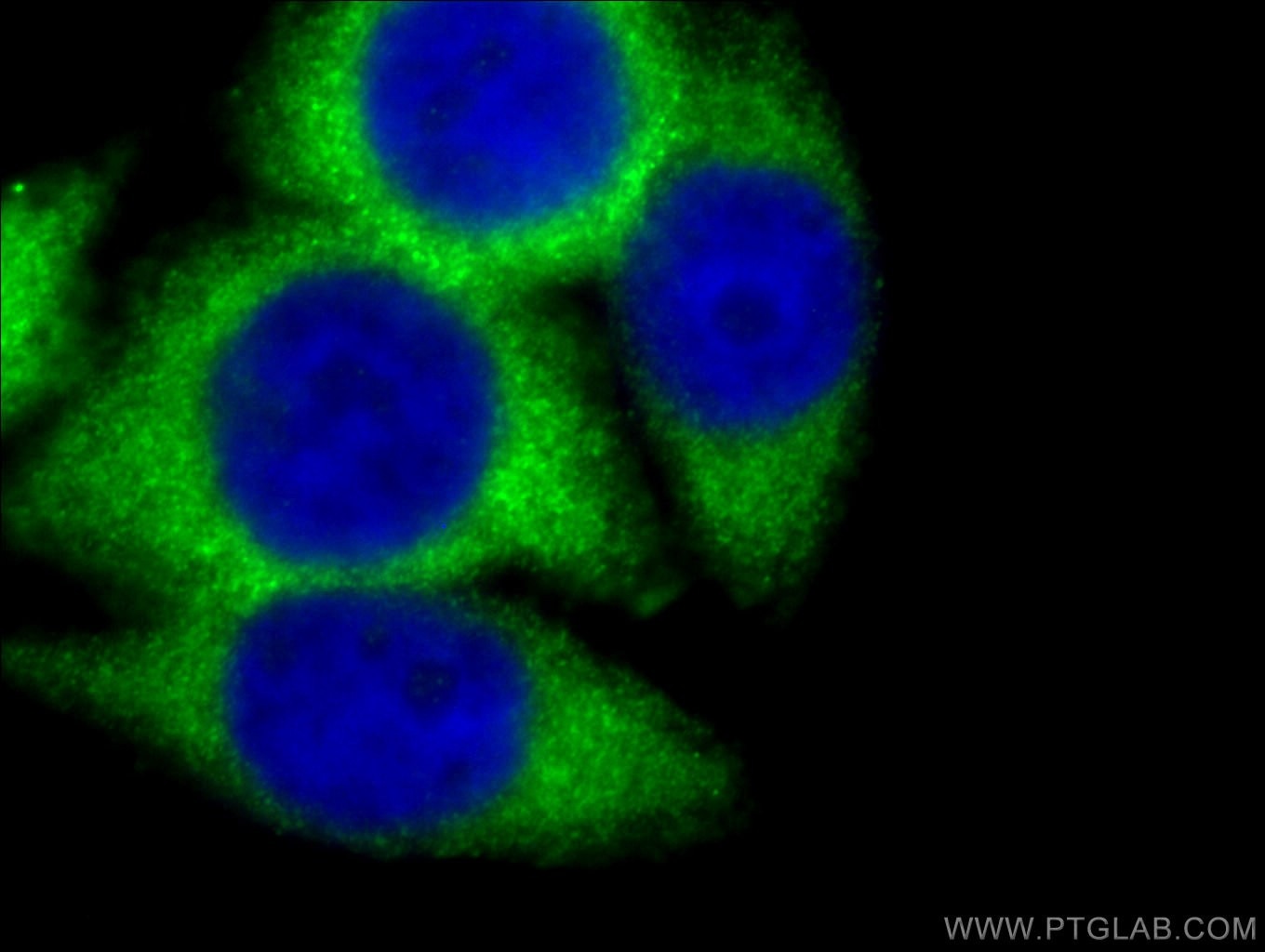- Featured Product
- KD/KO Validated
G6PD Monoclonal antibody
G6PD Monoclonal Antibody for IF, IHC, WB,ELISA
Host / Isotype
Mouse / IgG2a
Reactivity
human, mouse, rat
Applications
WB, IP, IHC, IF, ELISA
Conjugate
Unconjugated
CloneNo.
2A7B12
Cat no : 66373-1-Ig
Synonyms
Validation Data Gallery
Tested Applications
| Positive WB detected in | HepG2 cells, HeLa cells, rat spleen tissue, L02 cells, HEK-293 cells, NIH/3T3 cells |
| Positive IHC detected in | human liver cancer tissue Note: suggested antigen retrieval with TE buffer pH 9.0; (*) Alternatively, antigen retrieval may be performed with citrate buffer pH 6.0 |
| Positive IF detected in | HeLa cells |
Recommended dilution
| Application | Dilution |
|---|---|
| Western Blot (WB) | WB : 1:5000-1:50000 |
| Immunohistochemistry (IHC) | IHC : 1:100-1:400 |
| Immunofluorescence (IF) | IF : 1:50-1:200 |
| It is recommended that this reagent should be titrated in each testing system to obtain optimal results. | |
| Sample-dependent, Check data in validation data gallery. | |
Published Applications
| KD/KO | See 2 publications below |
| WB | See 9 publications below |
| IHC | See 3 publications below |
| IF | See 2 publications below |
| IP | See 1 publications below |
Product Information
66373-1-Ig targets G6PD in WB, IP, IHC, IF, ELISA applications and shows reactivity with human, mouse, rat samples.
| Tested Reactivity | human, mouse, rat |
| Cited Reactivity | human, mouse, rat |
| Host / Isotype | Mouse / IgG2a |
| Class | Monoclonal |
| Type | Antibody |
| Immunogen | G6PD fusion protein Ag21862 |
| Full Name | glucose-6-phosphate dehydrogenase |
| Calculated Molecular Weight | 59 kDa |
| Observed Molecular Weight | 60 kDa |
| GenBank Accession Number | BC000337 |
| Gene Symbol | G6PD |
| Gene ID (NCBI) | 2539 |
| RRID | AB_2877122 |
| Conjugate | Unconjugated |
| Form | Liquid |
| Purification Method | Protein A purification |
| Storage Buffer | PBS with 0.02% sodium azide and 50% glycerol pH 7.3. |
| Storage Conditions | Store at -20°C. Stable for one year after shipment. Aliquoting is unnecessary for -20oC storage. 20ul sizes contain 0.1% BSA. |
Background Information
G6PD(Glucose-6-phosphate 1-dehydrogenase) belongs to the glucose-6-phosphate dehydrogenase family. It is a housekeeping enzyme encoded in mammals by an X-linked gene. G6PD has important functions in intermediary metabolism because it catalyzes the first step in the pentose phosphate pathway and provides reductive potential in the form of NADPH.(PMID:7489710). This protein has 3 isoforms produced by alternative splicing.
Protocols
| Product Specific Protocols | |
|---|---|
| WB protocol for G6PD antibody 66373-1-Ig | Download protocol |
| IHC protocol for G6PD antibody 66373-1-Ig | Download protocol |
| IF protocol for G6PD antibody 66373-1-Ig | Download protocol |
| Standard Protocols | |
|---|---|
| Click here to view our Standard Protocols |
Publications
| Species | Application | Title |
|---|---|---|
Cell Metab Upregulation of Antioxidant Capacity and Nucleotide Precursor Availability Suffices for Oncogenic Transformation. | ||
Redox Biol The E3 ubiquitin ligase TRIM31 is involved in cerebral ischemic injury by promoting degradation of TIGAR. | ||
Clin Transl Med SIRT5 deficiency enhances the proliferative and therapeutic capacities of adipose-derived mesenchymal stem cells via metabolic switching. | ||
Int J Mol Sci G6PD Deficiency Is Crucial for Insulin Signaling Activation in Skeletal Muscle.
| ||
J Pharmacol Exp Ther Mechanistic Analysis of an Extracellular Signal-Regulated Kinase 2-Interacting Compound that Inhibits Mutant BRAF-Expressing Melanoma Cells by Inducing Oxidative Stress. |
